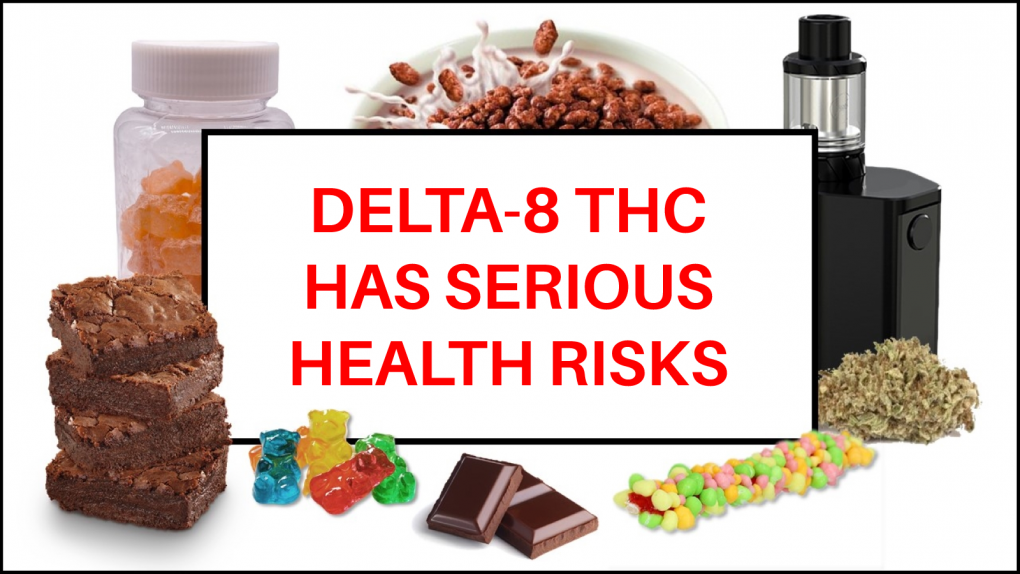On May 4, the U.S. Food and Drug Administration issued warning letters to five companies for selling products labeled as containing delta-8 tetrahydrocannabinol (delta-8 THC) in ways that violate the Federal Food, Drug, and Cosmetic Act (FD&C). This is the first time the public health agency has issued such letters for products containing delta-8 THC.
The FDA considers any product claiming to diagnose, cure, mitigate, treat, or prevent diseases an unapproved new drug. The warning letters address the companies’ illegal marketing of delta-8 THC as unapproved treatments, as there are currently no FDA-approved drugs containing delta-8 THC. The FDA sent warnings to ATLRx Of Alpharetta, GA, BioMD Plus of Marietta, GA, Los Angeles-based Delta 8 Hemp, Kingdom Harvest of Hendersonville, NC and M Six Labs of Saukville, WI.
In addition to targeting delta-8 THC products, several of the letters contend the companies’ marketing of CBD is also in violation of the FD&C Act. The FDA has only approved one prescription human drug product to treat rare, severe forms of epilepsy. The FDA has not yet evaluated the effectiveness of CBD or delta-8 THC for other medical uses, nor examined dosage or possible drug interactions.
The FDA warned the companies against marketing CBD products as treatment, promoting CBD goods as dietary supplements and adding CBD to human and animal foods. One of the letters expresses concerns regarding CBD products marketed for food-producing animals, and potential concerns for safe CBD residue levels in food products (e.g., meat, milk, eggs) from animals that consume CBD.

Warnings follow FDA consumer advisory
Delta-8 THC is produced by cannabis plants, but is not found naturally in significant amounts. Concentrated amounts of delta-8 THC are manufactured from hemp-derived cannabidiol and have psychoactive and intoxicating effects. The FDA recently published a consumer update expressing concerns about the potential health effects of delta-8 THC.
Advertisement
The FDA has received adverse event reports involving products containing delta-8 THC from consumers, healthcare practitioners and law enforcement – some of which resulted in hospitalization. The FDA received 104 reports of adverse events in patients who consumed delta-8 THC products between December 1, 2020, and February 28, 2022. Adverse events included hallucinations, vomiting, tremor, anxiety, dizziness, confusion and loss of consciousness. National poison control centers received 2,362 reports of exposure cases from delta-8 THC products in 13 months – 70% requiring health care facility evaluation.
“The FDA is very concerned about the growing popularity of delta-8 THC products being sold online and in stores nationwide. These products often include claims that they treat or alleviate the side effects related to a wide variety of diseases or medical disorders, such as cancer, multiple sclerosis, chronic pain, nausea and anxiety,” said FDA principal deputy commissioner Janet Woodcock, M.D. “It is extremely troubling that some of the food products are packaged and labeled in ways that may appeal to children.”
The FDA has previously sent warning letters to cannabis companies. They request a response within 15 working days on how the companies will address violations and prevent their recurrence. Failure to address the violations can result in legal action, including product seizure and/or injunction.
 This image from a U.S. Federal Food and Drug Administration consumer update on the potential hazards of delta-8 THC products has been followed up with warnings issued to manufacturers for violating its safety regulations. PHOTOS COURTESY THE FOOD AND DRUG ADMINSTRATION
This image from a U.S. Federal Food and Drug Administration consumer update on the potential hazards of delta-8 THC products has been followed up with warnings issued to manufacturers for violating its safety regulations. PHOTOS COURTESY THE FOOD AND DRUG ADMINSTRATION
















